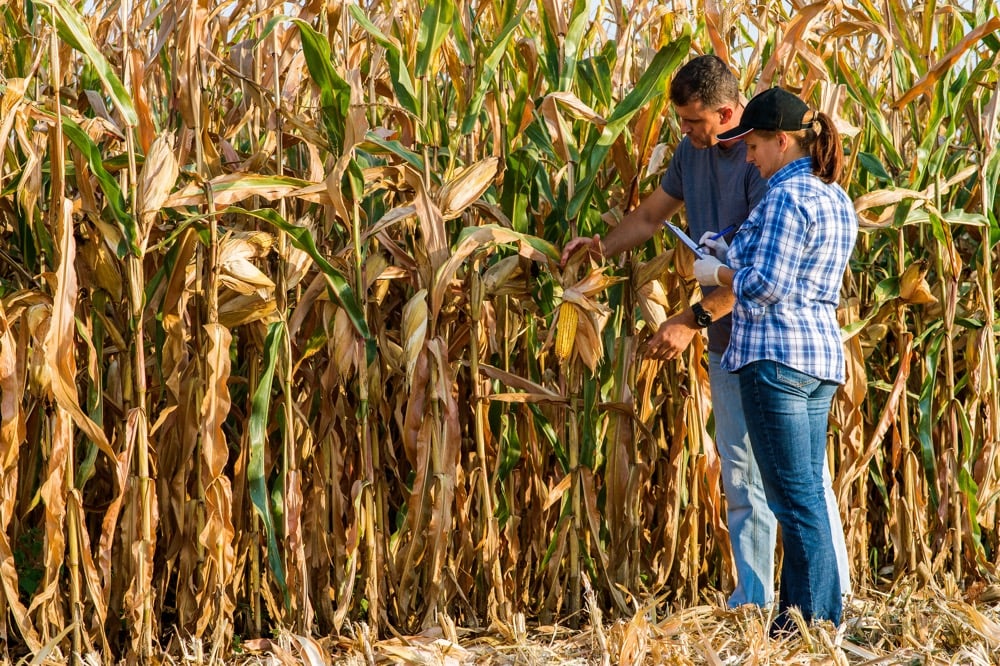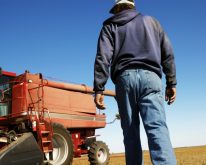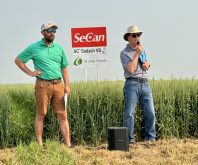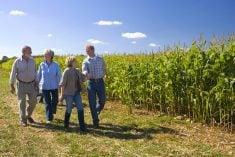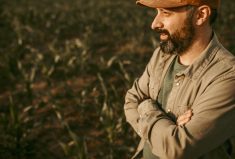Whether you are male or female, you know you need more business know-how to thrive in today’s ag world. Also regardless of whether you’re male or female, you’re probably actively seeking to increase those skills and your knowledge base.
Everyone is upping their game. It’s part of the farmer’s basic job description.
Maybe, though, the way that women are tackling the job of learning about business is producing some learnings that will help both sexes, regardless of age. At least it’s an idea that is getting looked at by more educators and trainers.
Read Also

Youth motivated to find answers to today’s agricultural challenges
This is the first in a series of articles exploring the perspectives and experiences of young people who are finding…
It’s also opening the doors for more local groups of farmers to design their own business programs, and to build in more take-home benefits for the farmers who attend.
Last year’s two-day Women in Grains business workshop is an example of why. Offered by Ontario’s Agricultural Management Institute (AMI), the workshop aimed to meet the needs of farm women in particular to up their skills and better manage their farms’ financial matters.
Here’s how they did it:
Their agenda was divided in blocks. On day one, Donna Archer, co-owner of Maizeing Acres commercial grain elevator at Campbellford, an hour and a half west of Toronto, presented a cost-of-production resource. Next, Rob Hannam, client director at Synthesis Agri-food Network, presented on whole-farm risk assessment, zooming in on topics from human resources to building maintenance.
On day two, attendees learned how to set up a grain marketing plan and use various tools to better track marketing efforts. Later on, they learned how to work more effectively with bankers, how to determine business health from financial statements, and more.
The idea for the workshop came about when AMI executive director Ashley Honsberger and staff were working with Grain Farmers of Ontario (GFO) on the Advanced Farm Management Program (AFMP) for grain farmers.
“The AFMP is designed to help you think strategically about your business, build a strong management action plan, and provide you with practical knowledge and insights to improve the everyday management of your operation,” Honsberger says.
Organizers learned of the well-established women’s club led by Donna Archer in the Belleville area that is hosted on a regular basis to give women a forum to talk about grain farming and other things around life in agriculture. They not only learned the club would be interested in learning more about the business end of grain farming, but there would likely be more women outside the club who would be keen to learn as well.
Honsberger and her team assumed correctly.
“We were hoping for 20 to 30 people and ended up having about 25 from around Belleville, as well as a couple of people from farther afield such as New Liskeard,” Honsberger says. “We had inquiries from women farther afield so we’re hoping to continue this program in a couple of locations.”
AMI spread the word through its social media platforms and also relied on partners Maizeing Acres and GFO to get the word out. Other individuals and groups such as the AG Women’s Network also lent a hand.
What to cover
In delving into workshop content development, the past experience of the AMI team in delivering a great deal of ag business education was obviously useful.
“This was very much a pilot workshop for us but thankfully we have six years of delivering the AFMP among other programs and workshops under our belt, and we were able to draw on the successful parts of the curriculum for this two-day workshop,” Honsberger says. “We also did a survey at the Maizeing Acre customer appreciation event to determine which management topics would be of interest to potential participants.”
The team, including Hannam and Steve McCabe (member relations lead at GFO), used all of this to put together the agenda — which needed to cover as much ground as possible in two days.
Honsberger says “musts” included a five-step plan for marketing grains, cost of production to determine necessary “sell” price, whole-farm risk assessment, and whole-farm analysis. “I also wanted to integrate a mental health speaker onto the roster because that is a topic in our industry that is top of mind for some really sad reasons,” says Honsberger. “A representative from the Canadian Mental Health Association joined us and talked for about an hour about her experience with mental health challenges and directed us towards some resources as well.”
Honsberger believes “the more we talk about how hard it is to be a small population of farmers producing the food people eat every day, facing constant change and challenge and increasing pressure, and sometimes all that with little reward, the more we can rely on our community and our network to support us through challenging times.”
Men and women
In the end, the question is: Was this workshop much different from how a workshop on the same subjects for men would have been? Honsberger says yes and no.
She explains that the intent of the workshop was to create a space where women felt able to share their experience and knowledge in grain farming, so in that way, the subject matter was the same as would be presented at any other management-oriented workshop.
But she observes that in comparison to other workshops she’s been involved with, there was an “interesting camaraderie” that developed in the room fairly quickly — partly because the attendees had a wide range of experience and situations, from a very well-established farm manager bringing young daughters into the fold to a woman who just married into a farm family.
“And the women there were very willing to share the ups and downs of their experience running the farm or working in the farm business,” adds Honsberger. “This is especially true when it came to some of the more challenging topics like working with an older generation, or mental health and farming.”
For her part, Archer thinks the differences between this women-focused workshop and others for both genders are small but significant. “Men and women tend to approach things differently and because they often have different roles on their farms,” she notes “… And when you’re in a room sharing with other women who have the same responsibilities, tackle the same problems and have to overcome the same stressors as you do, some very powerful learning happens.”
Honsberger and everyone else involved are very pleased that 100 per cent of the women who attended said they would recommend the workshop to their peers, that it helped them connect with other women in the industry, and that it was a safe space to learn and share.
And they want more
In her feedback, one participant said “Grain marketing aside (and it was great), please find an opportunity to bring farming women together at least once per year on any topic. It’s a fantastic, safe, rewarding time to share.” Others listed specific suggestions of what they’d like to learn more about, which Honsberger describes as “totally awesome.”
“Often, when you get one new skill under your belt you’re hungry for the next challenge,” she observes. “We heard from women that after the first day’s session, they sat down with their families to start practising what they had learned and try to take more of a team approach to things like managing input costs and planning for marketing over the year.”
Overall, Archer observes that every participant had something to contribute, whether it was articulating areas that needed to be addressed or offering potential solutions based on their own experiences. She believes that most participants were looking for resources and information to tweak their current practices, “but for some in the industry, a workshop like this can be an absolute game changer.”
“Lots of farms are going through significant transitions; they’ve sold their livestock and are now cash cropping for the first time, or one generation is retiring and a new one is now making the managerial decisions,” she says. “The amount of information that you have to know and learn to run a farm can seem overwhelming. This workshop gave participants resources to help them analyze the numbers and practices specific to their own farm.”
In calculating their cost of production, for example, Archer says several participants were surprised to see the actual costs their businesses were incurring, and others were surprised to see which specific aspects of their farms were generating the most revenue. With that knowledge, she says they can now make better decisions.
Honsberger is pleased to consider AMI’s first foray into offering something specifically for farm women quite successful. “We wanted to help fill a gap by giving women a space to learn from each other in a supportive and collaborative environment,” she says. “Historically, it has often been women who manage the business side of the farm through activities like bookkeeping, controlling costs and managing employees — so it only makes sense to equip women with the best knowledge available to help them drive their farm’s success.”
Archer adds: “When someone tells you ‘You changed that woman’s life,’ you know you’re helping people, families and farm businesses for the better. This is the first workshop that I have done together with the GFO and AMI, and we are planning to do more of them across the province. Women just need to speak up and request that these workshops be run in their communities.”
The Agricultural Management Institute (AMI) is also doing “new entrant to farming” workshops, and others to come may include a “hoof to hook” value chain-focused workshop in Thunder Bay in conjunction with OMAFRA. Visit the AMI website for details.

